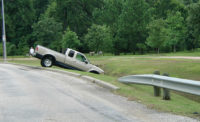Driving a vehicle for long hours is tiring and even the most careful driver can become less alert. Drivers can do several things to help stay alert and safe. Here are few suggestions:
Be Ready to Drive
Leaving on a long trip when you are tired is dangerous. Make sure you get enough sleep before departing on your journey. Most people require 7-8 hours of sleep every 24 hours.
Schedule Trips Safely
Your body becomes accustomed to sleeping during certain hours. If you are driving during those hours, you will be less alert. Try to schedule trips for the hours you are normally awake. Statistics show that the hours between midnight and 6 a.m. are particularly hazardous. Also, don’t try to keep going and finish a long trip if you become tired or sleepy.
Avoid Medication
Many medicines can make you sleepy, especially those with a label warning against operating vehicles or machinery. The most common types are over-the-counter cold medications.
Keep Cool
A hot, poorly ventilated car or truck can make you sleepy. Keep a window or vent open or use the air conditioner.
Take Breaks
Short breaks can help you stay alert, but take them before you feel drowsy or tired. Stop often and walk to stretch your muscles. The Texas Department of Transportation recommends taking a break every 100 miles.
Stop to Sleep
Stop when you feel the first signs of sleepiness, even if it is sooner than you planned. By waking a little earlier the next day, you can stay on schedule without endangering yourself or others.
Take a Nap
If you can’t stop for the night to sleep, pull off the road at a safe place such as a rest area or truck stop and take a nap. A half-hour nap will do more to overcome fatigue than a half-hour coffee stop.
Avoid Drugs
Drugs do not prevent you from being tired. While they may keep you awake for a while, they won’t keep you alert. Eventually you will be more tired than if you hadn’t taken them at all. Sleep is the only way to overcome fatigue.
Source: The Texas Department of Insurance, Division of Workers’ Compensation (TDI/DWC)


